Kenya holds its breath before tight poll
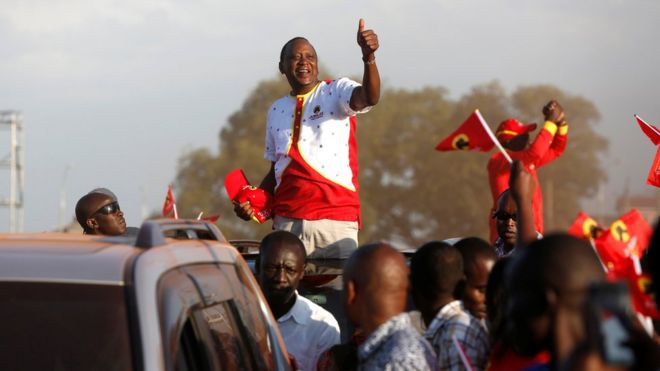 REUTERS
REUTERS
Kenya is holding its breath as the blaring speakers of the election campaign cars finally fall silent ahead of Tuesday's vote.
Ten years ago there was terrible post-election ethnic violence in the country, which nobody here wants to see repeated.
But with opinion polls predicting a very close race between incumbent president Uhuru Kenyatta and opposition leader Raila Odinga, there are fears there could be trouble ahead.
What happens to Kenya is less about who wins the elections and more about how those who lose take their defeat.
The success of the Independent Electoral and Boundaries Commission (IEBC) computerised voting system is key to the process being considered free and fair.
If it fails - as it did in 2013 - the votes will be counted manually, and in a country where vote-rigging has been alleged in the past, the loser will no doubt challenge the result.
In 2013, Raila Odinga turned to the courts claiming electoral fraud, and lost.
This time - his fourth and probably last attempt to become president - he may turn to the streets if he considers the election to have been stolen.
In theory, the voting system is a good one:
- Electronic identity verification should not allow people to vote more than once or the many dead people on the roll to vote at all
- Results will be announced at the constituency level
- Published counts will be sent digitally to Nairobi to be added up
- Election observers will be at thousands of polling stations
But if the computer system goes down, verifying the voters' roll will be a lot harder, and may raise suspicions.
More on Kenya's elections:
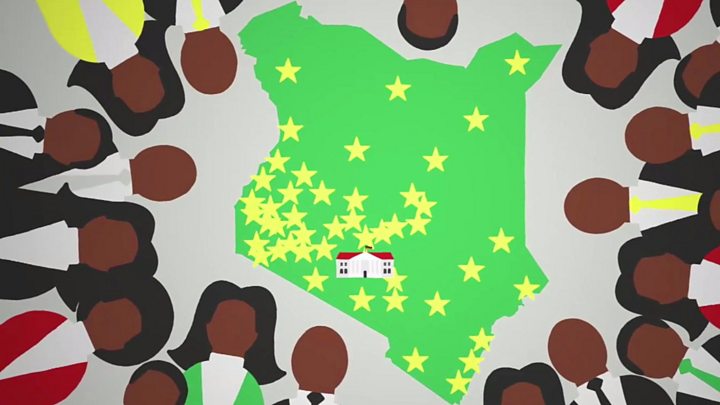
- Election fears trigger exodus
- Kenyatta: the digital president
- Odinga - love him or loathe him
- What first-time voters think
- Full elections coverage
The murder of a key figure a week before the poll - the Independent Electoral and Boundaries Commission (IEBC) head of technology - has really put the country on edge.
Chris Msando was in charge of the electronic system, and was the man who appeared on TV to reassure the public it would work - and couldn't be hacked.
When his tortured, strangled body was found dumped in a forest, it raised suspicions that somebody was planning to interfere with the election.
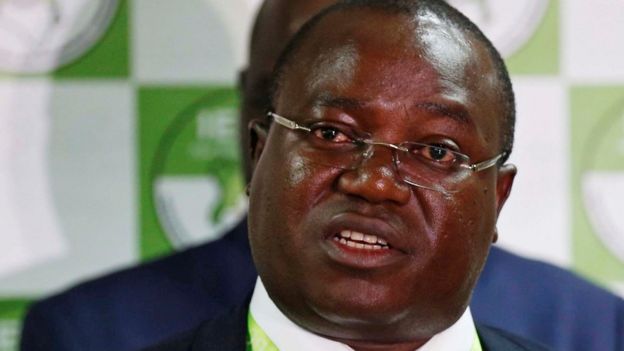 REUTERS
REUTERS
The IEBC insists the system will still work and successfully carried out a public "dry run" to prove it.
But a quarter of polling stations are apparently outside cellular data range.
On top of that, on Friday armed men raided a Nairobi building where the opposition is running its own parallel count and took computers. Later two foreign data analysts working for the opposition were expelled from Kenya.
More than 180,000 agents from various organs of state security are also believed to have been deployed for the election.
That could be considered a prudent security measure - or raise fears of polling station intimidation.
The worst-case scenario is an extremely close result, a failed electronic voting system, and a candidate who is not prepared to concede defeat.
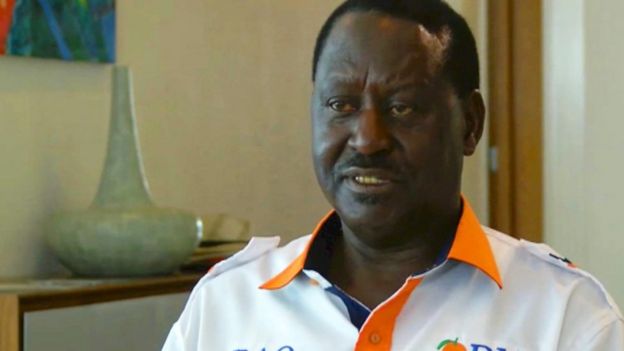 BBC NEWS
BBC NEWS
If nobody wins more than 50% of the vote, then it will go to a second round. But without a popular third candidate, that seems unlikely. It's being perceived as a two-horse race.
Whatever happens, this will be the last battle of the dynasties: Uhuru Kenyatta, the son of Kenya's first president, against Raila Odinga, the son of its first vice-president and a man who also spent much of his political career in opposition.
Mr Kenyatta, the 55-year-old incumbent, wants a second and final term in office for his Jubilee Party after narrowly winning the last election in 2013, despite having International Criminal Court (ICC) charges of inciting violence hanging over him.
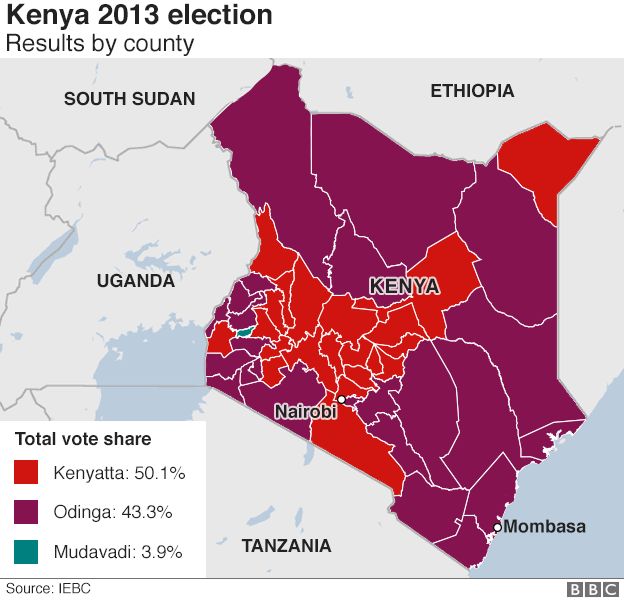
Mr Kenyatta, an ethnic Kikuyu, and his former rival William Ruto, a Kalenjin, were accused of inciting violence between the two communities.
The charges related to the 2007 post-election violence, which killed around 1,200 people and drove hundreds of thousands from their homes.
The ICC case recently collapsed due to lack of evidence and after key witnesses died or disappeared.
But the old ethnic wounds which were reopened have still not completely healed.
Many people will vote along "tribalism or party" lines, according to a respected Kenyan journalist. That's despite the wealth of issues people could draw upon to make their choice, including:
- Food shortages and the rising cost of basic goods
- Many government corruption scandals
- Land rights
- A lack of jobs
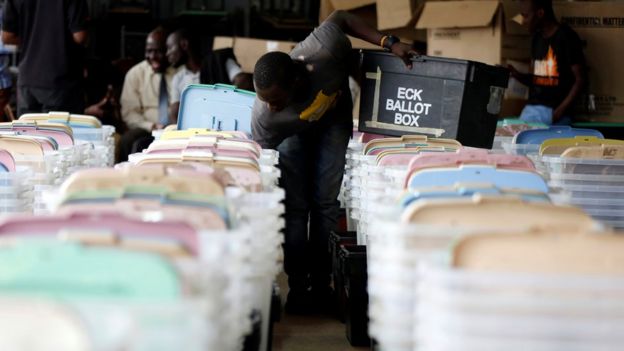 REUTERS
REUTERS
People in Mathare slum - one of the biggest in Nairobi - are certainly expecting trouble. Activists and community leaders have been holding peace marches and making speeches urging restraint, respect, and unity.
Political leaders have been using aggressive rhetoric which has been getting through to their supporters.
Rumour and counter-rumour have been circulating in the slums and social media geeks have been distributing alarming campaign ads and fake news.
If Raila Odinga loses, some say there will be violence in opposition areas - and the police have been kitted out with new deliveries of riot gear.
There could be violent clashes in other parts of the country where there have been tensions before.
But the key alliance between Kikuyu and Kalenjin - between Mr Kenyatta and his deputy - will mean it's unlikely the trouble could reach the level it did 10 years ago.
Strange things always happen before Kenyan elections - and this year is no exception.
There is a lot of uncertainty about what will happen, but most Kenyans hope the country can get through this week peacefully and move on.
No comments:
Post a Comment